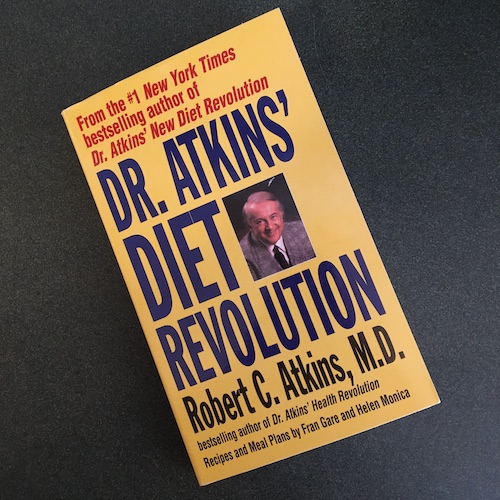Who cares? We’re not just some monolithic physical homo sapiens, we’re also a dimorphic species with very different hormonal frameworks that play out between females/males, and over ageing phases. We’re also cultural, spiritual, and emotional beings that find meaning and create antifragility culture very diversely. Add to that the reality that a huge portion of the world (and some on this forum) are lacto-ovo vegetarians - the cultural reality requires sensitivity rather than ideology. For those from eastern cultures and most of the global south, what makes food sustainable involves feasting on a variety of color and the 6 tastes (or 5 tastes in northern Asia), sharing it with others, and also weekly or monthly daylong fasts. In a modern industrial society there is actually no one version of “sustainable” if one is concerned with the whole person rather than the theoretical Grok (who is always a dude btw), as we live in an extremely diverse world of vast cultural histories and contexts.
I think it’s absurdly short-sighted and/or culturally egophrenic (supremacist) for anyone to assume that there is one ideal sustainable way for the present gut-deranged, metabolically-deranged, and often somewhat mentally-deranged human community in industrial society to eat and to heal - as if hunter/gatherers themselves were monolithic (they were not, there were/are regional variations and seasons & trading affected their menus as well). Furthermore, the using of knowledge about aboriginal meat/fish centered cultures to justify consumption of unnaturally produced, metabolically sick industrial meats/fish makes no sense imho and perpetuates false notions of noble savages, cave dwellers, and monolithic meat/fish.
I’m a huge fan of anti-oxidants/polyphenols & alkalinizing foods for midlife female health found in herbs, spices, plentiful veg, and some fruits as well as a wide range of spices - they offer much healing and culinary joie de vivre pertaining to many women’s hormonal healing needs. Women’s health is far understudied in general and in the keto world.
Sure, I can survive on fasting and meat - but my cells & palate & psyche rejoice with diverse beautiful Nature-made foods, herbs/spices as medicine, and the occasional pomegranate or apple - more a keto-vedic and keto-cusp (which the Drs. Eades coined) approach which for most non-IR folks enhances metabolic agility. And Phinney & Volek’s culturally sensitive approach to traditional cuisines is super smart and relevant for LCHF/keto to be globally accessible. My personal culture is one that embraces diverse tastiness - and after my first year of keto, I found that alkalinizing whole foods carbs have been very beneficial for my metabolic agility.
However, there are some who feel great, have turned around autoimmune issues, and/or just prefer to mono-cuisine via non-veg LCHF/keto - good for them!  There are some who have an ideal of hyper-lean/teen self that they are chasing intentionally - I don’t relate to that as a goal at all, but live and let live etc. However, when carni is out of the carnival context and pushed as a mass prescription/dogma in crosscultural discourse and in an n=1 forum such as this it’s a FAIL.
There are some who have an ideal of hyper-lean/teen self that they are chasing intentionally - I don’t relate to that as a goal at all, but live and let live etc. However, when carni is out of the carnival context and pushed as a mass prescription/dogma in crosscultural discourse and in an n=1 forum such as this it’s a FAIL.
Though I’d happily eat meat-only in survival situations, and I love a good all-meat grill party ( and raw meat only for certain kinds of healing), I consider myself extremely blessed to be free to choose my culinary preferences and celebrate this brief life sharing food with good people and enjoying with Nature’s many beautiful alkalinizing foods as well as meat/dairy from small farms on my LCHF/keto journey. I choose to live it up and kick a** while I can with lovely real foods as recommended in cornerstone keto guidance from Phinney/Volek/Eades/Gittleman/Cabeca, with moderate protein (as opposed to limitless/high protein as if it rains down from the sky like manna) and natural IF.




 There are some who have an ideal of hyper-lean/teen self that they are chasing intentionally - I don’t relate to that as a goal at all, but live and let live etc. However, when carni is out of the carnival context and pushed as a mass prescription/dogma in crosscultural discourse and in an n=1 forum such as this it’s a FAIL.
There are some who have an ideal of hyper-lean/teen self that they are chasing intentionally - I don’t relate to that as a goal at all, but live and let live etc. However, when carni is out of the carnival context and pushed as a mass prescription/dogma in crosscultural discourse and in an n=1 forum such as this it’s a FAIL.